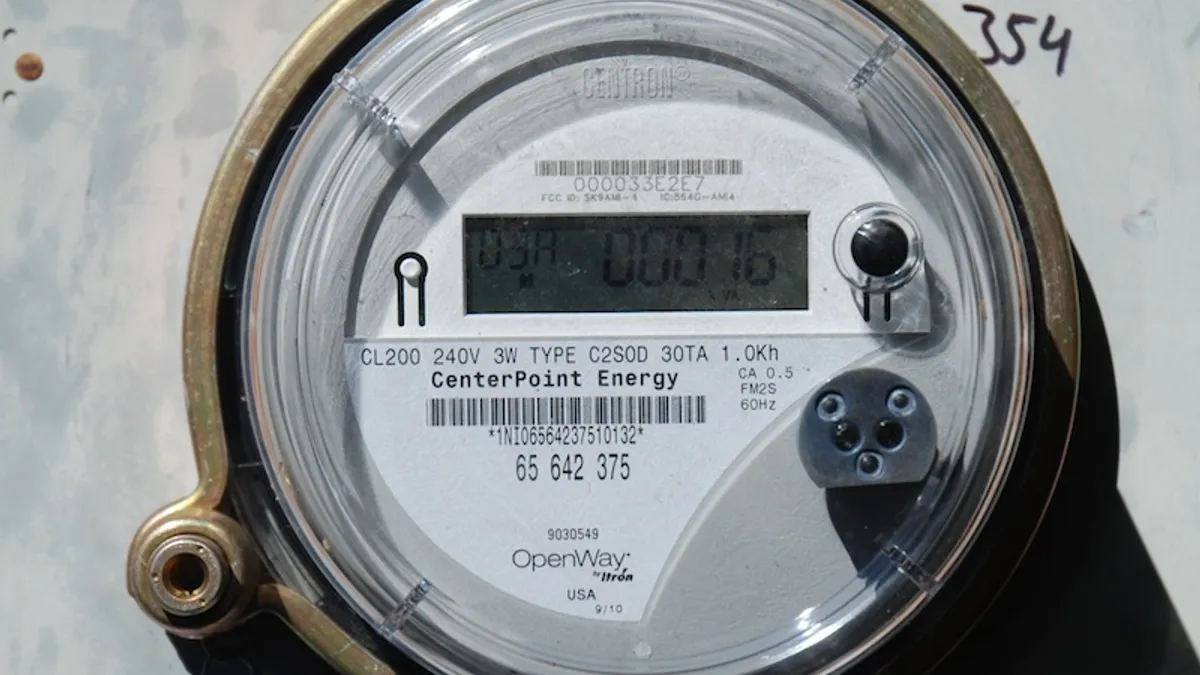Dive Brief:
- Texas regulators on Thursday approved recommendations to improve and streamline the state's smart meter data portal, including standardizing data transfers to be more in line with the national Green Button Connect program.
- The unanimous settlement agreement, filed in January, brought together several stakeholders, including Mission:data Coalition and Texas Advanced Energy Business Alliance (TAEBA).
- While Texas has been a national leader when it comes to rolling out smart meters, customer advocates say efforts to simplify data transfer could ease program signup frustrations and lead to a higher number of participants.
Dive Insight:
Upgrades to the SMT portal aim to make it easier for customers to choose an energy management provider. The settlement regulators approved Thursday clarifies those “competitive service providers” are not considered retail electric providers. Instead, they're considered specialists in providing energy management services.
Texas was one of the first states to deploy advanced meters in 2008, and its Smart Meter Texas (SMT) portal has helped to make it a leader in electricity competition. But the portal's design was difficult to use, and unique to the state. The recommendations will align SMT closer to national standards for data transfer, such as Green Button, allowing for businesses and the market to develop new energy products.
The portal allows customers to download and view their own energy data or share it with companies marketing services like energy efficiency, demand response and distributed generation.
According to a statement from the Mission:data Coalition, the SMT portal as it was originally designed "has been difficult for customers to use, resulting in very few taking advantage of the system." The group says improved SMT access "will allow customers to opt-in to data sharing with their chosen competitive providers with a simple and secure one-click email consent."
The industry-led Green Button standard aims to provide utility customers with easy and secure access to their energy usage information; it was developed in response to a White House directive in 2012.
We've seen that customers are discouraged from enrolling in programs with unnecessarily time-intensive, complex, and complicated steps,” Laura Kier, senior associate at EnergyHub, said in a statement. The company is a residential demand response and grid services provider.
Kier said the "more streamlined process" for SMT is "crucial to creating a positive customer experience, and one that encourages customers [to] take advantage of new energy services."















